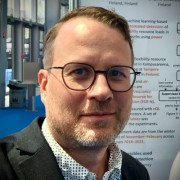The University of Eastern Finland is involved in several competence clusters and ecosystems. The key elements of the university’s ecosystems of impact are high-level expertise, competence development, and sharing of expertise. The ecosystems are a means of widely disseminating the scientific information generated at the university and the latest results of its research activities, while having an impact on our partners’ operations.
The university’s role in the ecosystems of impact includes sharing research infrastructure and services, carrying out joint procurement of equipment, integrating education to meet the ecosystem’s needs and project planning. The university is also engaged in impactful work relevant to each ecosystem. We also open up channels for higher education cooperation at the international level.
What is an ecosystem?
An ecosystem refers to a self-sustaining system formed around knowledge, competence, companies, and innovations, in which various actors pursue new and innovative activities by working together. A self-organising, self-correcting ecosystem based on networking is always worth more than the sum of its parts. Forming the basis of ecosystems are innovation platforms, in other words, permanent services that support innovation activities and development, such as research infrastructures.








